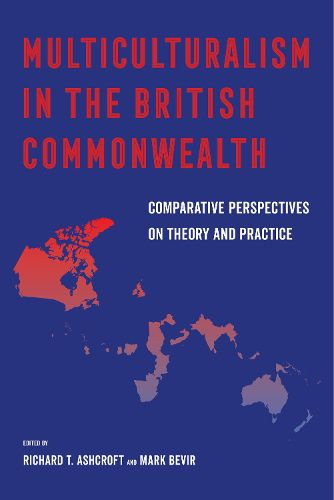Readings Newsletter
Become a Readings Member to make your shopping experience even easier.
Sign in or sign up for free!
You’re not far away from qualifying for FREE standard shipping within Australia
You’ve qualified for FREE standard shipping within Australia
The cart is loading…






A free open access ebook is available upon publication. Learn more at www.luminosoa.org.
Multiculturalism as a distinct form of liberal-democratic governance gained widespread acceptance after World War II, but in recent years this consensus has been fractured. Multiculturalism in the British Commonwealth examines cultural diversity across the postwar Commonwealth, situating modern multiculturalism in its national, international, and historical contexts. Bringing together practitioners from across the humanities and social sciences to explore the legal, political, and philosophical issues involved, these essays address common questions: What is postwar multiculturalism? Why did it come about? How have social actors responded to it? In addition to chapters on Australia, Britain, Canada, and New Zealand, this volume also covers India, Malaysia, Nigeria, Singapore, and Trinidad, tracing the historical roots of contemporary dilemmas back to the intertwined legacies of imperialism and liberalism. In so doing it demonstrates that multiculturalism has implications that stretch far beyond its current formulations in public and academic discourse.
$9.00 standard shipping within Australia
FREE standard shipping within Australia for orders over $100.00
Express & International shipping calculated at checkout
A free open access ebook is available upon publication. Learn more at www.luminosoa.org.
Multiculturalism as a distinct form of liberal-democratic governance gained widespread acceptance after World War II, but in recent years this consensus has been fractured. Multiculturalism in the British Commonwealth examines cultural diversity across the postwar Commonwealth, situating modern multiculturalism in its national, international, and historical contexts. Bringing together practitioners from across the humanities and social sciences to explore the legal, political, and philosophical issues involved, these essays address common questions: What is postwar multiculturalism? Why did it come about? How have social actors responded to it? In addition to chapters on Australia, Britain, Canada, and New Zealand, this volume also covers India, Malaysia, Nigeria, Singapore, and Trinidad, tracing the historical roots of contemporary dilemmas back to the intertwined legacies of imperialism and liberalism. In so doing it demonstrates that multiculturalism has implications that stretch far beyond its current formulations in public and academic discourse.